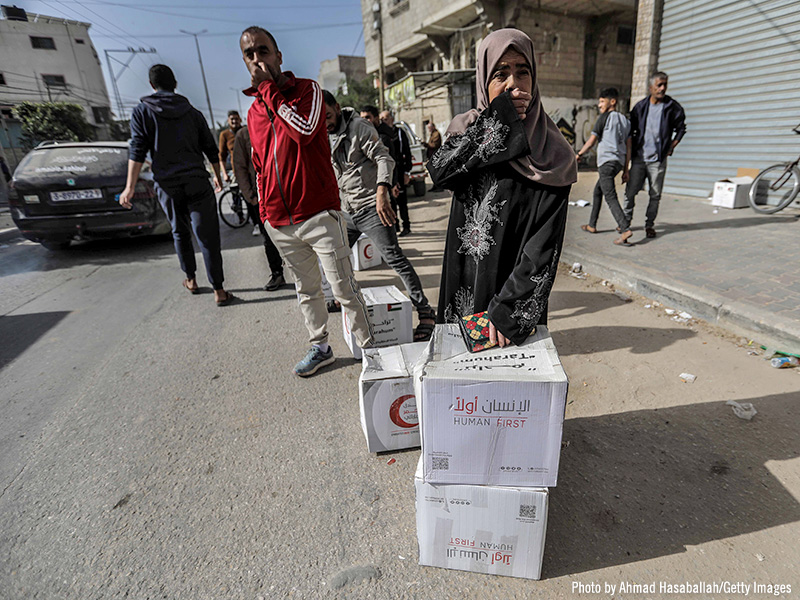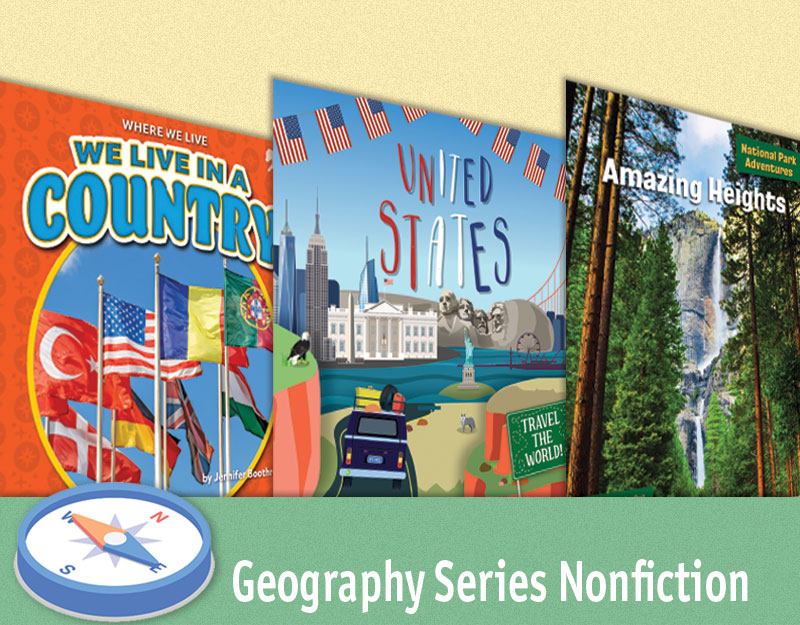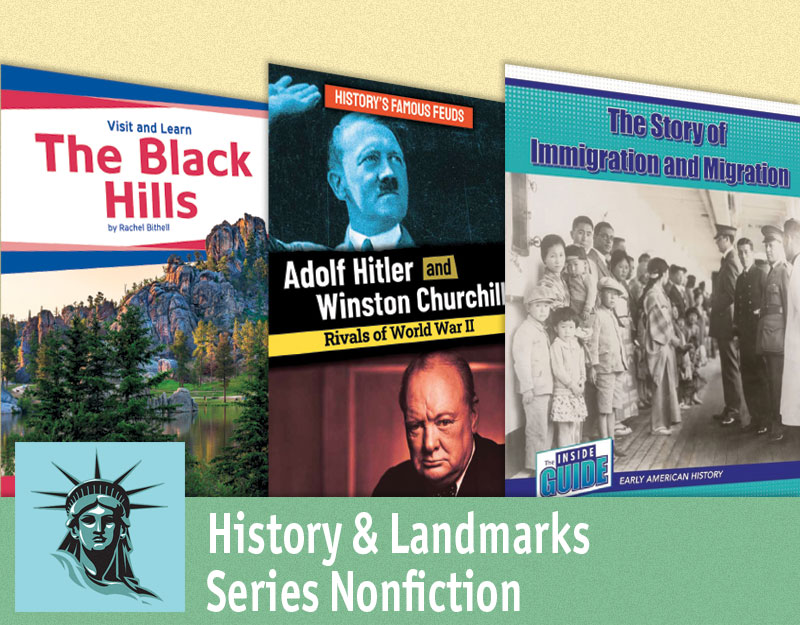#SJYALit: Rape Culture–Twenty-five years ago and today, a guest post by Clara Kensie
 1992. My senior year in college. It’s Friday night, and I go with some of my sorority sisters to a local restaurant for burgers and cheese fries before we start our round of fraternity parties. There are a couple of pool tables in the bar area, so we play a game while we wait to be seated. As I lean over the pool table to take a shot, I feel something thin and hard rubbing between my legs.
1992. My senior year in college. It’s Friday night, and I go with some of my sorority sisters to a local restaurant for burgers and cheese fries before we start our round of fraternity parties. There are a couple of pool tables in the bar area, so we play a game while we wait to be seated. As I lean over the pool table to take a shot, I feel something thin and hard rubbing between my legs.
Shocked, I turn around to see a guy in his mid-twenties standing a couple feet behind me, smiling, rubbing his pool cue between my legs. I move away. A few minutes later, he does it again. I roll my eyes and shake my head, and move again. A few minutes later, he closes in, backing me up against the pool table, and I have to push him aside to get away.
ADVERTISEMENT
ADVERTISEMENT
Pool Cue Guy is angry and humiliated. He was just trying to meet me, he says, and he doesn’t understand why I would push him. His friends overhear, and one of them calls me a bitch. Pool Cue Guy calls me a slut.
I’m upset, but I’m also embarrassed, so I say nothing. I have dinner with my friends, avoiding Pool Cue Guy’s glares from across the restaurant, and slink away as soon as we’re done eating.
Pool Cue Guy had a right to be offended that I rejected him. I should have been flattered by his aggressive attraction to me.
Those sentences are appalling when stated so plainly like that—and wow, I am furious as I write them—but beliefs like these are instilled in us practically from birth.
- We dress baby girls in onesies that say “Sweetie Pie” or “Daddy’s Little Princess.” We dress baby boys in onesies that say “Here Comes Trouble” or “Future Ladies’ Man.”
- In the name of politeness, well-meaning parents insist their toddlers greet adults with a hug or a kiss, even if the child doesn’t want to.
- On the playground girls are told, “He’s teasing/chasing/hitting you because he likes you.”
- In school, boys’ behavior, concentration, and academic problems are often blamed on girls. In some schools, dress codes are enforced by sending girls home to change—denying girls their education so boys can continue theirs without distraction.
- When a drunk girl is raped, the alcohol condemns her. “She was drunk, no wonder she got raped.” When a drunk boy rapes, the alcohol excuses him. “He was drunk, it wasn’t his fault.”
- We teach girls that they are to blame when boys objectify or sexualize them against their wishes.
- Over and over again we are told “boys will be boys.” We are lead to believe that men and boys simply have no control over their sexual actions. But while most men are rightfully insulted by this saying—of course men and boys have control over their own actions— many people view “boys will be boys” as an excuse, and an expectation, of bad behavior.
Beliefs like these made Pool Cue Guy think it was okay to pursue me by rubbing a stick between my legs. Beliefs like these that made me not tell him no, made me not tell the manager, made me feel ashamed.
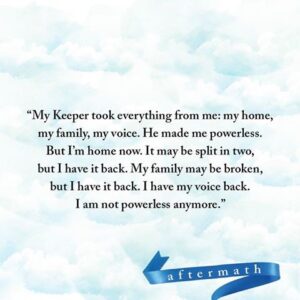 As I recall that incident today, twenty-five years later, I’m no longer ashamed, but want to yell at my college-age self for letting him approach me three times before pushing him away. And now I want to yell at my current self for instinctively writing the words “letting him” in the previous sentence. Shouldn’t my initial, gut reaction have been to yell not at myself, but at Pool Cue Guy? I’m blaming myself for his actions, still, twenty five years later.
As I recall that incident today, twenty-five years later, I’m no longer ashamed, but want to yell at my college-age self for letting him approach me three times before pushing him away. And now I want to yell at my current self for instinctively writing the words “letting him” in the previous sentence. Shouldn’t my initial, gut reaction have been to yell not at myself, but at Pool Cue Guy? I’m blaming myself for his actions, still, twenty five years later.
This is rape culture.
Rape culture goes beyond a guy rubbing a pool cue between a girl’s legs. It goes all the way to the people who make and enforce our laws. Our court system often prevents sexual assault victims from attaining justice, and in at least one case has even prohibited the victim from using the word “rape” while testifying. Our current vice president will not meet one-on-one with women. Our current president bragged about his sexual assault of women, then dismissed it as “locker room talk”—which is itself rape culture. Yet we elected these men to lead our country.
I admit, sometimes it feels pretty hopeless. But our society is becoming more aware of rape culture. We’re recognizing the things we all do to contribute it, and we’re speaking out and fighting against it.
How do we stop rape culture? How do we change the way an entire society views sex and gender? We start at the place it began: at home. I have two kids now, a boy and a girl, both teenagers. I have never forced them to give hugs as a greeting or kisses a thank-you for a gift. I don’t dictate their clothing or hairstyles because I don’t have ownership of their bodies, they do. I encourage them to ask questions about sex, and I answer honestly and without judgement or shame. I regularly educate them about equality and respect and autonomy and consent. We talk about politics, we know who our politicians are, and my eighteen-year-old son votes. We discuss how obvious things such as dress codes, slut-shaming, and the Steubenville and Brock Turner cases, as well as seemingly innocuous things like the movie Passengers, perpetuate rape culture.
And I know that if Pool Cue Guy did that to either of my kids today, their reactions would be completely different than mine was.
Note: Many of the examples I gave in this post focus on women and girls as the victims, but I want to point out that men and boys can be victims of rape too. According to this report by the National Sexual Violence Resource Center, one in five women and one in 71 men will be raped at some point in their lives. One in four girls and one in six boys are sexually abused before age 18.
YOUR TURN: Have you ever blamed yourself for someone else’s actions? What are other ways our society perpetuates rape culture? What can we do to change that?
About AFTERMATH by Clara Kensie
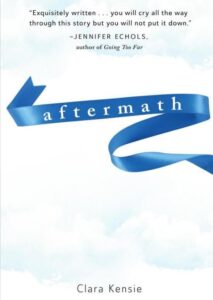 November 2016, Merit Press, an imprint of Simon and Schuster
November 2016, Merit Press, an imprint of Simon and Schuster
Charlotte survived four long years as a prisoner in the attic of her kidnapper, sustained only by dreams of her loving family. The chance to escape suddenly arrives, and Charlotte fights her way to freedom. But an answered prayer turns into heartbreak. Losing her has torn her family apart. Her parents have divorced: Dad’s a glutton for fame, Mom drinks too much, and Charlotte’s twin is a zoned-out druggie. Her father wants Charlotte write a book and go on a lecture tour, and her mom wants to keep her safe, a virtual prisoner in her own home. But Charlotte is obsessed with the other girl who was kidnapped, who never got a second chance at life–the girl who nobody but Charlotte believes really existed. Until she can get justice for that girl, even if she has to do it on her own, whatever the danger, Charlotte will never be free.
Young Adult Books Central Top Ten Books of 2016
Goodreads Most Popular Books Published in November 2016
Children’s Book Review Best New Young Adult Books November 2016
Find AFTERMATH at your favorite bookstore, including:
Amazon Barnes & Noble Books-A-Million Indiebound
“Kensie writes a powerful novel about the will to survive under terrifying circumstances and the impact of a kidnapping—and its aftermath .. .The cast of supporting characters is well developed and strong. Give this to readers who love gripping, heart-wrenching tales of hope and survival.” —VOYA Magazine
“Charlotte’s bravery will inspire readers. Her ongoing struggle to confront the horror of what she’s endured rings true, and her recovery process could provide therapeutic reading for rape survivors. Teens who revel in worst-case scenario stories like Natasha Preston’s The Cellar and Kevin Brooks’s The Bunker Diary will enjoy the shocking plot twists.” —School Library Journal
“A gut-wrenching, emotional tale of a teen who is found after being abducted. There’s…also a ray of hope in this story. This makes this book stand out among the others out there. Charlotte goes from being a victim of horrific abuse to a survivor. The ending chapter is perfect. A story of hope and the power of love.” –YA Books Central
“For all of us who have watched the chilling news of kidnapped females rescued and thought ‘There but for the grace of God’ and ‘How do they go on?’…here is the answer fully imagined, exquisitely written, ultimately triumphant. You will cry all the way through this story but you will not put it down.” ~Jennifer Echols, award-winning author of Going Too Far
“Kensie deftly explores what happens after the supposedly happy ending of a nightmare. But nothing is as simple as it seems–not even the truth.” ~April Henry, author of The Girl I Used to Be; Girl, Stolen; and The Night She Disappeared
“A captivating story of self-(re)discovery, Clara Kensie’s Aftermath introduces us to Charlotte, a sixteen-year-old girl trying hard to reclaim her place in a family decimated by her kidnapping four years earlier. Charlotte wants only to catch up to her twin Alexa and live out all the plans they’d made as children, but finds the journey back to ‘normal’ is not only hers to take. Charlotte is a heroine to cheer for…with gut-twisting bravery and raw honesty, she takes us through that journey–back to the unspeakable tortures she endured in captivity and forward to how those years scarred her family, leaving us intensely hopeful and confident that she will not merely survive, but triumph.” ~Patty Blount, author of Some Boys; Send; TMI; and Nothing Left to Burn
“Delving deep into the darkness of abduction and its ‘Aftermath,’ Kensie takes us on an unflinching journey of healing, courage, and triumph of the human spirit. Heartbreaking, yet stubbornly hopeful.” ~Sonali Dev, author of A Bollywood Affair and The Bollywood Bride
ADVERTISEMENT
ADVERTISEMENT
“Aftermath is a timely, powerful portrait of hope amid tragedy, strength amid brokenness, and the healing power of forgiveness.” ~Erica O’Rourke, award-winning author of the Torn trilogy and the Dissonance series
“Gripping, powerful, deeply moving, Aftermath is a book I didn’t want to end. It’s written with such compassion that it will help readers heal. A must-read.” ~Cheryl Rainfield, author of Scars and Stained
Meet Clara Kensie, author of dark fiction for young adults
…don’t forget to breathe…
 Clara Kensie grew up near Chicago, reading every book she could find and using her diary to write stories about a girl with psychic powers who solved mysteries. She purposely did not hide her diary, hoping someone would read it and assume she was writing about herself. Since then, she’s swapped her diary for a computer and admits her characters are fictional, but otherwise she hasn’t changed one bit.
Clara Kensie grew up near Chicago, reading every book she could find and using her diary to write stories about a girl with psychic powers who solved mysteries. She purposely did not hide her diary, hoping someone would read it and assume she was writing about herself. Since then, she’s swapped her diary for a computer and admits her characters are fictional, but otherwise she hasn’t changed one bit.
Today Clara is a RITA© Award-winning author of dark fiction for young adults. Her super-romantic psychic thriller series, Run To You, was named an RT Book Review Editors Pick for Best Books of 2014, and Run to You Book One: Deception So Deadly, is the winner of the prestigious 2015 RITA© Award for Best First Book.
Clara’s latest release is Aftermath, a dark, ripped-from-the-headlines YA contemporary in the tradition of Room and The Lovely Bones. Aftermath (Simon and Schuster/Merit Press) is on Goodreads’ list of Most Popular Books Published in November 2016, and Young Adult Books Central declared it a Top Ten Book of 2016.
Clara’s favorite foods are guacamole and cookie dough. But not together. That would be gross.
Find Clara online:
Website Newsletter Instagram Twitter Facebook Insiders Goodreads
Filed under: #SJYALit
About Amanda MacGregor
Amanda MacGregor works in an elementary library, loves dogs, and can be found on Twitter @CiteSomething.
ADVERTISEMENT
ADVERTISEMENT
SLJ Blog Network
Happy Poem in Your Pocket Day!
This Q&A is Going Exactly As Planned: A Talk with Tao Nyeu About Her Latest Book
Family Style: Memories of an American from Vietnam | Review
Parsing Religion in Public Schools
ADVERTISEMENT



